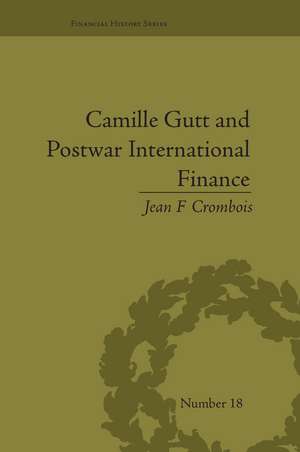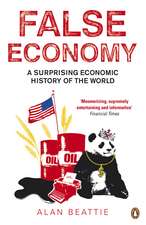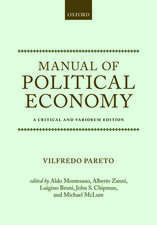Camille Gutt and Postwar International Finance: Financial History
Autor Jean F Cromboisen Limba Engleză Paperback – 21 ian 2016
| Toate formatele și edițiile | Preț | Express |
|---|---|---|
| Paperback (1) | 449.41 lei 6-8 săpt. | |
| Taylor & Francis – 21 ian 2016 | 449.41 lei 6-8 săpt. | |
| Hardback (1) | 1055.21 lei 6-8 săpt. | |
| Taylor & Francis – iul 2011 | 1055.21 lei 6-8 săpt. |
Din seria Financial History
-
 Preț: 312.13 lei
Preț: 312.13 lei -
 Preț: 489.26 lei
Preț: 489.26 lei -
 Preț: 449.41 lei
Preț: 449.41 lei - 26%
 Preț: 846.09 lei
Preț: 846.09 lei -
 Preț: 449.41 lei
Preț: 449.41 lei -
 Preț: 489.26 lei
Preț: 489.26 lei -
 Preț: 445.89 lei
Preț: 445.89 lei -
 Preț: 449.41 lei
Preț: 449.41 lei -
 Preț: 489.26 lei
Preț: 489.26 lei - 31%
 Preț: 765.45 lei
Preț: 765.45 lei -
 Preț: 449.41 lei
Preț: 449.41 lei -
 Preț: 449.41 lei
Preț: 449.41 lei -
 Preț: 329.88 lei
Preț: 329.88 lei -
 Preț: 449.41 lei
Preț: 449.41 lei -
 Preț: 329.88 lei
Preț: 329.88 lei -
 Preț: 449.41 lei
Preț: 449.41 lei - 18%
 Preț: 1108.73 lei
Preț: 1108.73 lei -
 Preț: 449.41 lei
Preț: 449.41 lei -
 Preț: 449.41 lei
Preț: 449.41 lei -
 Preț: 449.41 lei
Preț: 449.41 lei -
 Preț: 449.41 lei
Preț: 449.41 lei -
 Preț: 323.23 lei
Preț: 323.23 lei -
 Preț: 449.41 lei
Preț: 449.41 lei - 18%
 Preț: 1107.16 lei
Preț: 1107.16 lei - 18%
 Preț: 1053.92 lei
Preț: 1053.92 lei -
 Preț: 449.41 lei
Preț: 449.41 lei -
 Preț: 449.41 lei
Preț: 449.41 lei - 26%
 Preț: 765.43 lei
Preț: 765.43 lei
Preț: 449.41 lei
Nou
Puncte Express: 674
Preț estimativ în valută:
86.01€ • 89.46$ • 71.00£
86.01€ • 89.46$ • 71.00£
Carte tipărită la comandă
Livrare economică 15-29 aprilie
Preluare comenzi: 021 569.72.76
Specificații
ISBN-13: 9781138661349
ISBN-10: 1138661341
Pagini: 208
Dimensiuni: 156 x 234 x 11 mm
Greutate: 0.45 kg
Ediția:1
Editura: Taylor & Francis
Colecția Routledge
Seria Financial History
Locul publicării:Oxford, United Kingdom
ISBN-10: 1138661341
Pagini: 208
Dimensiuni: 156 x 234 x 11 mm
Greutate: 0.45 kg
Ediția:1
Editura: Taylor & Francis
Colecția Routledge
Seria Financial History
Locul publicării:Oxford, United Kingdom
Cuprins
Introduction; Chapter 1 Camille Gutt, Finance and Politics (1919–40); Chapter 2 Belgian War Financial Diplomacy: Negotiating the Belgian Contribution to the War Effort; Chapter 3 Financial Diplomacy in London During The Second World War: Towards a New Monetary Order?; Chapter 4 Extending the Benelux Agreements: Regional Integration as an Alternative to The Anglo-American Plans; Chapter 5 The Birth of a Monetary System: Camille Gutt and Bretton Woods (1943–4); Chapter 6 Camille Gutt, First Managing Director of the International Monetary Fund (1946–51); conclusion Conclusion;
Descriere
As a businessman, financier, diplomat, minister, and first Managing Director of the IMF, Camille Gutt (1884–1971) was involved in all the important financial negotiations between the 1920s and the 1950s. Using Gutt’s personal archives as his starting point, Crombois examines the rise and fall of financial diplomacy as a largely private enterprise.


















